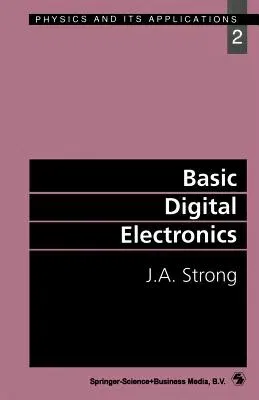Modern electronics is the most visible result of research in solid state
physics. Transistors and integrated circuits are used everywhere in ever
increasing numbers. The microprocessor controlled coffee-pot exists.
Most experimental physicists, and, indeed, experimental scientists in
most disciplines, study their subject with the aid of apparatus
containing significant amounts of electronics and much of that
electronics is digital. In order to design experiments and apparatus or
simply to understand how a piece of equipment works, an under- standing
of electronics has become increasingly important. In recognition that
electronics has pervaded so many areas, courses in digital electronics
are now a recommended part of physics and many other science degree
courses. At the introductory level, digital electronics is, primarily, a
practical subject with relatively few basic concepts and any complex-
ity arises from the coupling together of many simple circuits and the
extensive use of feedback. Designing an electronic circuit and then
getting it to work correctly provides an experience, and a sense of
achievement, which is significantly different from most undergradu- ate
work as it more closely resembles project work than standard laboratory
practicals.


